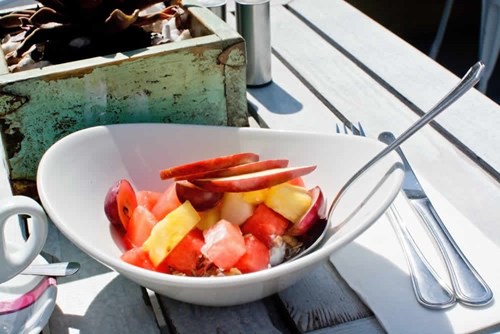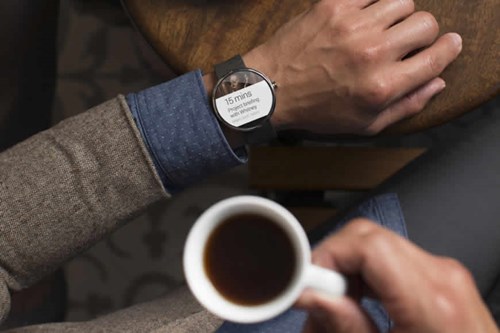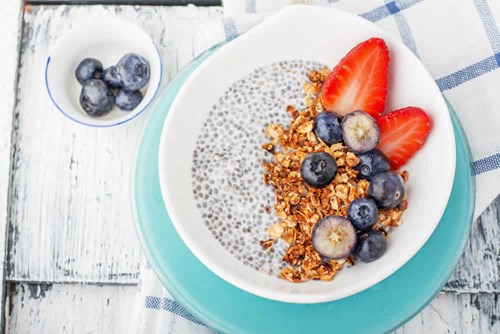Why your diet is so important as a student
)
It’s late at night and you’re hurrying to finish an assignment. Your energy levels are low, it’s hard to concentrate and you’re feeling pretty stressed. We have all fallen into the trap of walking to the fridge or a vending machine and grabbing a sugary treat, or ordering a pizza. I hate to say it, but this is kicking yourself in the foot.
Everyone loves food. I mean, everyone has different tastes, but everyone loves food. I often plan my day around what I’m going to eat, and towards the end of it I spend long, wistful minutes wishing I had a meal in front of me.
But we don’t often think of food in terms of why we love it. It tastes great, sure, but more importantly it is energy. From a survival perspective, it’s important that we enjoy eating, so that we continue to do so and stay alive. It’s easy to forget that food, apart from being delicious, is basically just fuel for our bodies. We put a meal in and we get energy out.
Every meal or snack we eat is like throwing a log on a fire to keep it going. The bigger and better the piece of timber, the better and longer the fire burns. In the same way, it’s so important we eat food that provides our bodies with good fuel.
A big bowl of creamy pasta tastes amazing, but as soon as those highly delicious carbs hit your belly you’re going to feel sleepy and sitting down to study is the last thing you’ll feel like doing. Sugar also has a time and a place, but just like a piece of paper in a fire, it burns quick and bright. It’s no secret that every high is followed by a low.
As a rule of thumb, meals that pack a punch, and are going to keep you going through a grueling study sesh, should contain a nice chunk of protein – that could be among other things: meats, nuts, quinoa, mushrooms, peas, lentils, beans, tofu and fish.
How well do you treat your body when studying?

The connection between our minds and our bodies is stronger than we think. Our brain needs nourishment to operate well, just like our body does. It’s important to give it the food it needs to perform at it’s best. That's why your diet is so important as a student.
Below are some tips for what to avoid and what to try to eat when you need to hit the books:
Be Cautious with Caffeine
Caffeine is a tricky one. It certainly wakes you up, but drink too much and it could be a different story! During assessment periods, it’s really important you’re getting enough sleep. One or two coffees a day (depending on your metabolism) can get you right into that sweet spot of productivity where you’re studying really well. However, too much caffeine can induce anxiety, stress, insomnia and even worse.
After a certain point, caffeine can harm rather than help. Energy and cognitive capacity should not be confused, just because energy drinks give you a rush doesn’t mean they increase your ability to process information!
While caffeine can make us feel sharp and keep us awake for those long nights, it can also make us anxious and prevent us from getting the sleep we need during assessment periods. If your body needs rest, no energy drink or triple-shot latte is going to be able to keep your mind focused. Sleep is the only real cure for fatigue.

If Your Grandma Couldn't Make it, Don't Eat Too Much of It
This little rule is useful to think of when you’re feeling a bit overwhelmed trying to figure out what’s good to eat and what’s not. Of course, my grandma knew how to make a wicked caramel slice, so the rule doesn’t apply in every scenario!
But the basic idea behind it is to look for foods that haven’t been too highly processed. Try to find or create meals that involve ingredients in their natural states – vegetables, meats, grains, legumes, fruit. Stay away from processed meats, packaged foods and fast food and you’re already doing well.
What's Really Wrong With Sugar?
Studies have shown that sugar, specifically fructose which is a type of sugar our bodies find very difficult to digest, is bad for us in a few different ways. Not only is it linked to obesity issues, it also influences our thinking, learning and memory.
Ground breaking research at UCLA has even found a link between fructose consumption and cognitive decline/dementia in the elderly! Of course, a cheeky sweet treat is all good every now and then, but it pays to avoid really sugary treats most days of the week.
Research undertaken in 2012at UCLA, shows that the food we consume has a direct affect on the way we think. Fernando Gomez-Pinilla, a professor in neurosurgery, explains that “eating a high-fructose diet over the long term alters your brain's ability to learn and remember information”.
So when you’ve got a deadline, a big assignment, or an exam to study for, reaching for a bag of Skittles to get your through isn’t going to help your brain do its thing.

It’s not only that fructose makes it more difficult for our brains to understand and memorise information, there are more serious and long-term threats it poses to the performance of our brains. More and more research has begun to indicate that eating a diet high in sugar has the potential to increase the likelihood of developing Alzheimer’s disease.
Study Snack Inspiration
It’s not all bad news. There are plenty of study snacks and treats that taste delicious and also provide your brain with the power it needs to get you the grades. Good study snacks are things like nuts, berries, avocado on toast, natural yoghurt, wholegrain crackers, hummus, avocado, a can of tuna, oven baked sweet potato chips.
Think along the lines of anything that hasn’t been processed too far, or had much sugar added. You could blend up a banana with a bit of milk and honey, or snack on strawberries for sweetness. Snacking well doesn’t have to mean that weird trail mix your mum buys from the health food aisle; it can be a treat, too!
If you're stuck for ideas try some of these foods for inspiration or why not plan the week ahead with some meal preparation.
What are some of your go-to study-snacks? Tell us in the comments!


)
)

